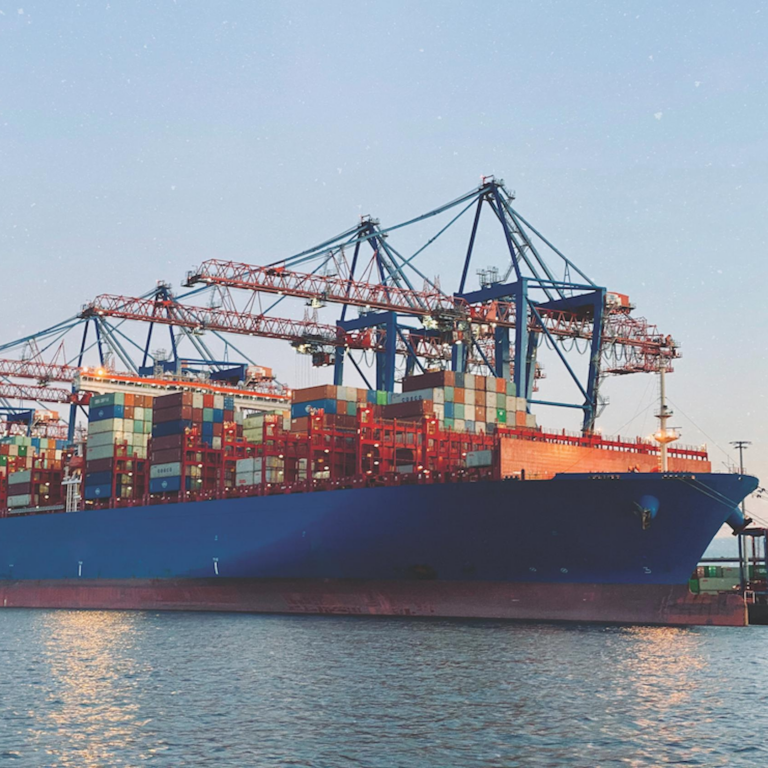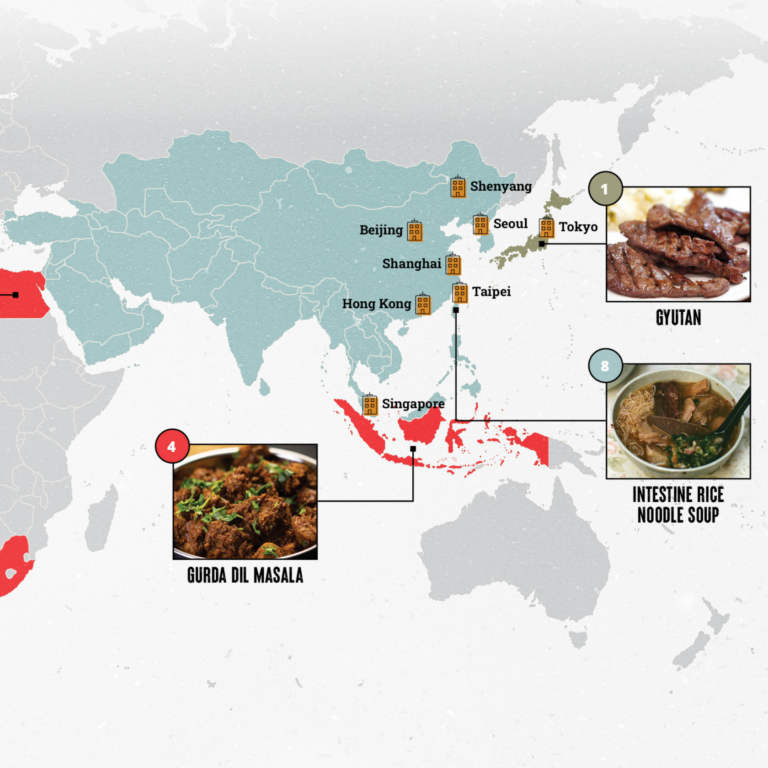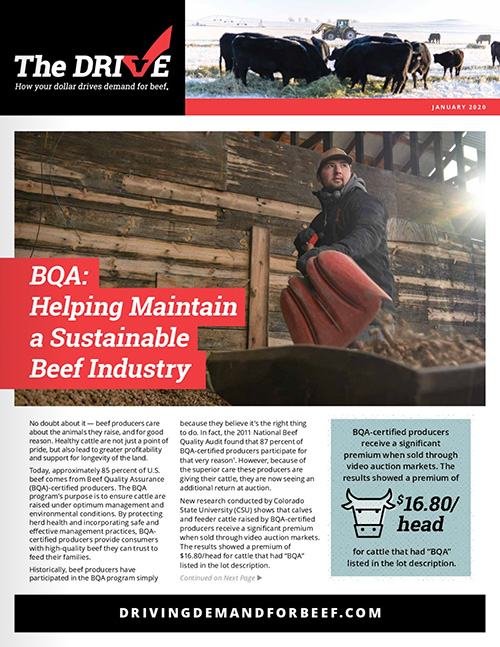How Exports Add Value to U.S. Beef
International trade is a vital aspect of America’s cattle industry. With 95 percent of the global population and 80 percent of global buying power located outside U.S. borders, foreign marketing of U.S. beef is necessary to increase beef sales worldwide. By increasing U.S. beef demand and sales internationally, the Beef Checkoff is helping promote economic growth and support producers’ bottom lines.
The Beef Checkoff’s foreign marketing initiative, executed by U.S. Meat Export Federation (USMEF), works to develop international markets for U.S. beef through programs aimed at expanding market penetration, gaining new market access, improving global consumer perceptions and building trust in U.S. beef. Market competition is fierce, but Checkoff-funded efforts work to inform foreign countries that U.S. beef is the premium choice. More and more consumers worldwide want U.S. beef, which is evident with record-breaking growth throughout 2021 and 2022, including the return on per-head value back to beef producers. In 2021, U.S. beef export value equated to a record $407.22 per head of fed slaughter1. More recently, in the first quarter of 2022, exports increased six percent to 353,852 metric tons, valued at just over $3 billion2.
“Global demand for U.S. beef has eclipsed anything I have seen in many years in the meat business,” said USMEF President and CEO Dan Halstrom. “While this momentum is fueled by mainstay markets such as South Korea, Japan and Taiwan, demand is also very strong in China/Hong Kong and key Latin American markets, while exports to the Middle East have rebounded impressively.”
This beneficial rebound of U.S. beef demand has happened despite immense supply chain disruptions and shutdowns due to the coronavirus pandemic. To continue this unparalleled momentum and increase the visibility of U.S. beef, USMEF executes numerous individualized Checkoff-funded campaigns in multiple countries.
Check Out a Few of the Recent Campaigns:
COLUMBIA: Differentiating U.S. Beef in Butcher Shops
A primary sales channel for imported beef is through importer-owned butcher shops, which USMEF has targeted for technical and marketing support. A new training program was implemented to help these butcher shops sell more high-quality U.S. beef. “Our market assessments show a wide disparity in how meat is handled, merchandised and sold at retail, especially in butcher shops,” says Don Mason, USMEF representative in Colombia. Training programs developed for butcher shops will improve food safety, product management and merchandising to increase U.S. beef sales.
TAIWAN: Alternative Cuts and Marketing Innovations Shared with Restaurant Chains
The U.S. continues to dominate Taiwan’s chilled beef market, capturing 80 percent market share. 1 “Purchasing programs for chilled U.S. beef are growing in the retail sector,” says Davis Wu, USMEF Taiwan director. Restaurant chains are also expanding and showing interest in high-quality, chilled U.S. beef. USMEF recently held a two-day seminar for 71 participants from Taiwan’s leading restaurant chains. The participants learned about the competitiveness of alternative U.S. beef cuts, and experts demonstrated the latest marketing innovations.
JAPAN: Nationwide Promotion for U.S. Beef
USMEF executed a nationwide promotion from April to June to boost sales of U.S. beef. The campaign took place at more than 1,000 Japanese retail outlets. It was supported by campaign stickers, point-of-sale materials, consumer contests and giveaways, original recipes, and website and social media promotional support.
SOUTH AMERICA: Education and Training Critical to Market Development
With staff embedded in markets worldwide, the U.S. beef industry is positioned to partner with buyers and develop export opportunities. Education and training about high-quality, grain-fed U.S. beef are ongoing, especially in new and emerging markets such as South America. Regional activities conducted during a recent two-week period in Peru and Chile included: technical assistance with a new U.S. beef product launch for an importer; training with 40 plant operators from 10 Peruvian importers; SalesForce training for a Chilean distributor; educational training with five new U.S. beef distributors in Peru; technical training with foodservice customers about the flat-iron cut; and trade/market analysis updates for regional importers and distributors.
MEXICO: Chefs and Nutritionists Program Expands
Greater opportunities for face-to-face interaction at the retail point of sale, and increasing interest and online engagement about food nutrition, have prompted an expansion of the chefs and nutritionists consultation program in Mexico. Chefs and nutritionists are positioned near meat cases to promote U.S. beef, provide general nutrition information and share recipe cards. Consumers who purchase U.S. beef can receive consultations about the nutritional benefits of U.S. beef based on health information collected from each individual. The retail program is leveraged online through a nutrition website where consumers can also register for online consultations at no cost.
With programs like these in place, the Beef Checkoff is introducing high-quality beef to worldwide consumers who may have never enjoyed it before but will now continue to request it from their grocers and restaurants. Checkoff-funded programs will continue to grow U.S. beef’s global recognition and consumers’ desire for a quality eating experience.
The Beef Checkoff program was established as part of the 1985 Farm Bill. The checkoff assesses $1 per head on the sale of live domestic and imported cattle, in addition to a comparable assessment on imported beef and beef products. States may retain up to 50 cents on the dollar and forward the other 50 cents per head to the Cattlemen’s Beef Promotion and Research Board, which administers the national checkoff program, subject to USDA approval.



















